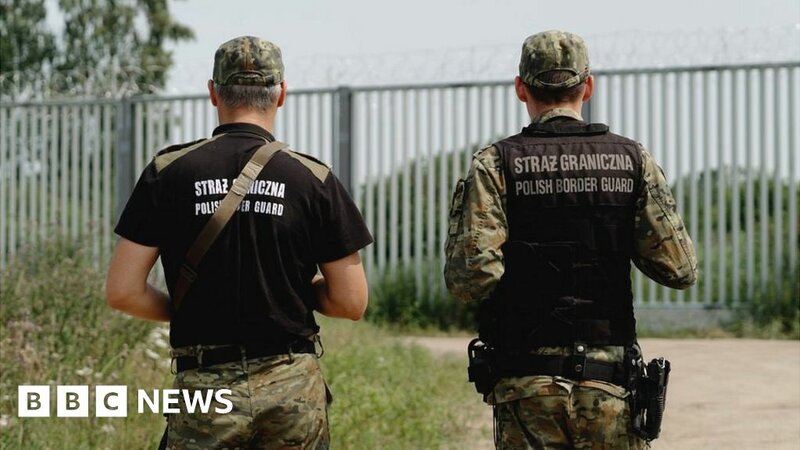The prospect of mercenaries from the Russian Wagner group moving to Belarus as part of the deal struck to end their mutiny has made Poland extra wary of its neighbour.
A border once marked by a few pillars and wooden look-out posts has already been transformed by miles of tall metal fencing, thermal cameras and spotlights.
They were installed after Belarus began encouraging thousands of migrants to cross into Poland two years ago in what Warsaw calls an act of hybrid warfare; Minsk and Moscow are close allies.
Ahead of this week's Nato summit in Lithuania, the Polish government has been warning that Wagner forces could be used to spark more trouble, so it's deploying hundreds of extra officers at its eastern border as reinforcements.
"The biggest threat is that our neighbour, Belarus, is completely unpredictable," Michal Bura of the local border guard explains, although all is calm as we talk - apart from swarms of vicious summer bugs in the wheat fields.
"We have to be ready for any developments. Maybe Wagner will be a problem, but no one really knows why they're going there or what they're preparing for."



 Poland
Poland Minsk
Minsk Russia
Russia Ukraine
Ukraine


